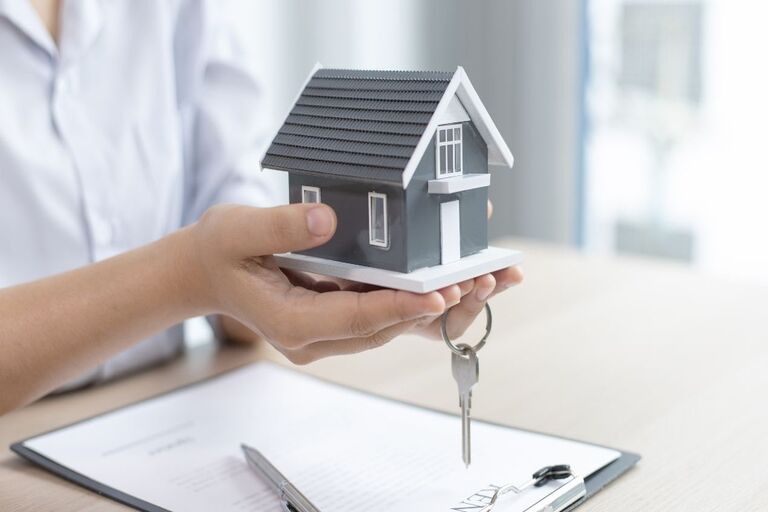Renting vs. Buying a Home: Pros and Cons
One of the biggest financial decisions you’ll ever make is whether to rent or buy a home. It’s not just about money—your lifestyle, future plans, and personal preferences all come into play. Some people dream of owning their own home, while others love the freedom that comes with renting. So, which is better? Let’s break down the pros and cons of renting vs. buying a home to help you figure out what works best for you.
Pros of Renting a Home
1. Flexibility and Mobility
Renting offers more freedom to move. If your job requires relocation or you’re unsure where you want to live long-term, renting is ideal. Lease agreements typically last 6–12 months, making it easier to move when needed.
2. Lower Upfront Costs
Renting doesn’t require a large down payment. Most rentals only require the first month’s rent, a security deposit, and maybe a small application fee. This makes renting more affordable initially.
3. Fewer Responsibilities
As a renter, you don’t have to worry about maintenance and repairs. If something breaks, it’s usually your landlord’s responsibility to fix it. This saves you both time and money.
4. No Property Tax
Renters are not responsible for property taxes, which can be a significant annual expense for homeowners.
5. Amenities Included
Many rental properties offer amenities like swimming pools, gyms, and laundry facilities at no extra cost. These are benefits that might be costly or unavailable in a home you own.
Cons of Renting a Home
1. No Equity Building
When you rent, your monthly payments go to your landlord—not toward building your own asset. Over time, you’ll spend a lot on rent without owning anything in return.
2. Limited Control
You can’t make major changes to a rental property, like renovating the kitchen or painting the walls a bright color. You also may have restrictions on pets or other personal choices.
3. Rent Increases
Rent can go up at the end of your lease, depending on market rates or your landlord’s decisions. This can make it harder to budget long-term.
4. Lack of Stability
A landlord may decide to sell the property or not renew your lease, forcing you to move unexpectedly.
Pros of Buying a Home
1. Building Equity
Every mortgage payment brings you one step closer to owning your home outright. Over time, this builds wealth and increases your net worth.
2. Stability and Control
Homeownership provides stability. You won’t be forced to move because someone else makes a decision. You also have complete freedom to renovate or decorate as you like.
3. Investment Potential
Real estate can increase in value over time. If the market grows and you maintain your home well, you might be able to sell it later for a profit.
4. Tax Benefits
Homeowners can often deduct mortgage interest and property taxes, potentially lowering their income tax bill.
5. Pride of Ownership
Owning a home can give you a sense of accomplishment and pride. It’s a space that’s truly yours.
Cons of Buying a Home
1. High Upfront Costs
Buying a home requires a significant down payment—usually 10–20% of the home’s price—plus closing costs, inspections, and more.
2. Maintenance Costs
When you own a home, all repairs and upkeep are your responsibility. These expenses can add up quickly, especially for older homes.
3. Property Taxes and Insurance
As a homeowner, you’ll need to pay annual property taxes and maintain homeowners insurance. These costs vary by location and can be expensive.
4. Less Flexibility
Selling a home takes time and effort. If you need to relocate quickly for a job or personal reason, it may not be easy to sell right away.
5. Risk of Depreciation
While homes often appreciate in value, markets can also decline. If property values drop, your home may be worth less than what you paid for it.
How to Decide What’s Best for You
There’s no one-size-fits-all answer to the rent vs. buy question. It depends on your goals, finances, and lifestyle.
You Might Prefer Renting If:
- You value flexibility and mobility.
- You’re not ready to settle down long-term.
- You don’t want the financial responsibility of home maintenance.
- You’re working on improving your credit or saving for a down payment.
You Might Prefer Buying If:
- You’re financially stable and plan to stay in one place for several years.
- You want to invest in a long-term asset.
- You’re ready to handle home repairs and maintenance.
- You want more control over your living space.
FAQs
- Is it cheaper to rent or buy a home?
It depends on your location and financial situation. Renting is usually cheaper in the short term, while buying may save money in the long run if property values rise. - How do I know if I’m ready to buy a home?
You should have a stable income, good credit, enough for a down payment, and a plan to stay in the area for at least 5 years. - Can I buy a house with bad credit?
It’s possible, but you may face higher interest rates. Improving your credit score can help you get better mortgage terms. - What happens if I break a lease when renting?
You may have to pay a penalty or lose your security deposit. Always read the lease agreement carefully before signing. - How much should I save for a home down payment?
Aim for 10–20% of the home’s price. Some loans allow smaller down payments, but this may lead to higher monthly costs.
Conclusion
Renting and buying each have their own set of advantages and disadvantages. Renting gives you flexibility and fewer responsibilities, while buying helps you build equity and gain long-term stability. Before making a decision, consider your personal goals, current financial situation, and how long you plan to stay in one place. With a little planning and a clear understanding of the pros and cons, you’ll be able to make the choice that best fits your lifestyle.


